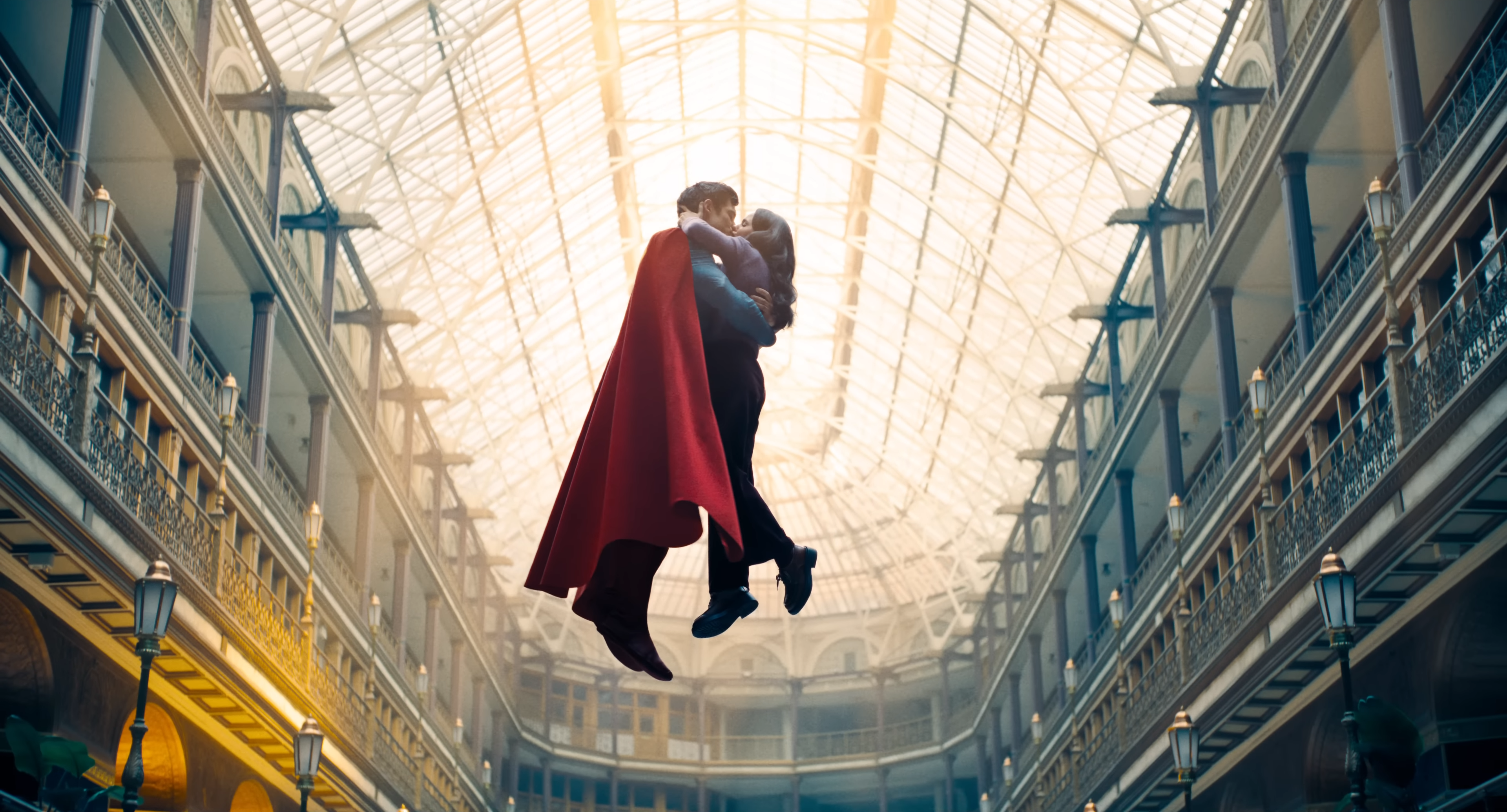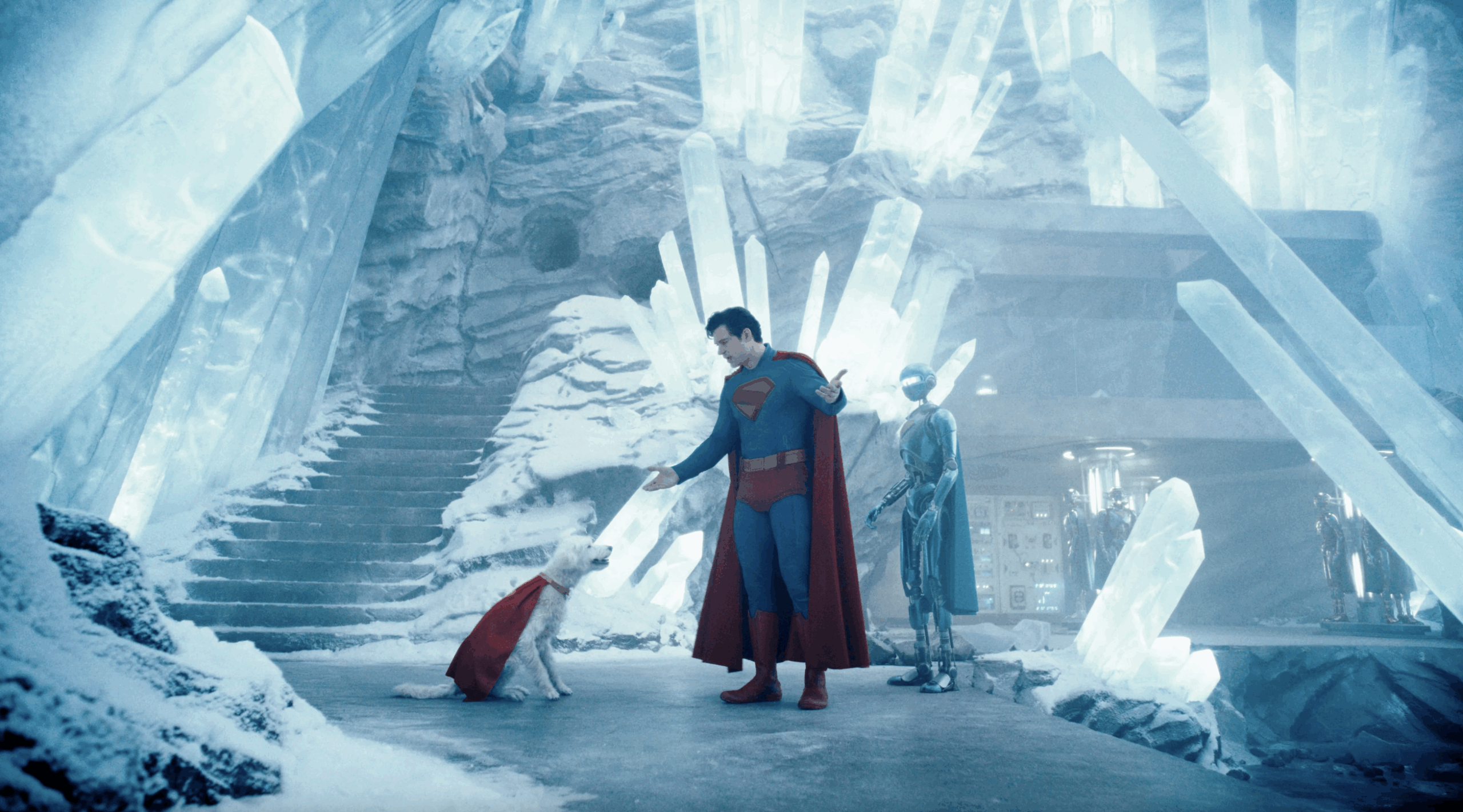James Gunn | 2hr 9min

For DC Studios, the stakes riding on Superman’s success are arguably higher than any superhero movie in recent memory. Not only must they reboot a cinematic universe, but also entirely rebuild it, paving a path forward that restores brand confidence after the collapse of the DC Extended Universe. On a broader level, Warner Bros. Discovery is also banking on a smash hit to ward off a potential merger, while James Gunn himself seeks to balance the character’s old-school sentimentality with cultural relevance. In the end though, all it really takes for this version of Superman to triumph is vision, dedication, and craftsmanship – not exactly a high bar to clear, yet nevertheless a meaningful one in a franchise so fragmented by directionless ambition.
It certainly helps that Gunn is now steering the ship, having earned his stripes overseeing Marvel’s Guardians of the Galaxy trilogy and gifting the DCEU its single strongest instalment in The Suicide Squad. Even if the resounding cinematic triumph of The Batman or the Spider-Verse series has somewhat eluded him, he has taken his place among the most creative auteurs in the comic book movie industry, resisting detractors with his curated brand of offbeat humour and colourful stylisations. Gone is the unsmiling stoicism of Man of Steel, and in its place is a lighter yet equally sincere idealism, giving us a Superman whose humanity is ironically his greatest power.
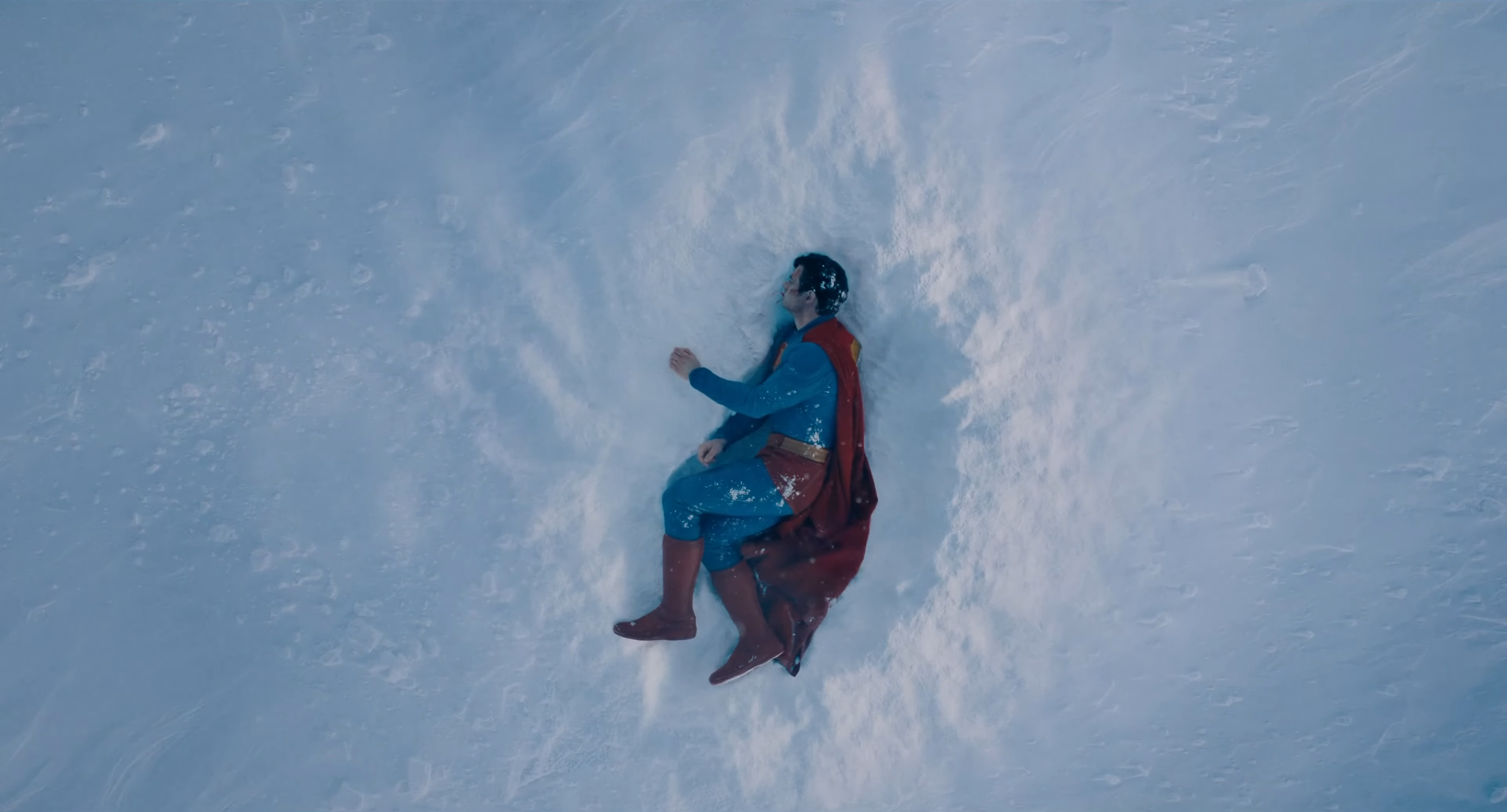
Gunn forgoes the usual hero origin story here, besides some text briefly explaining Superman’s heritage and the history of metahumans. We instead open in media res with him crashlanding in Antarctica, broken and bloodied after his first loss, and immediately subverting the image of physical strength that the character typically projects. It seems he has met his match against a villain apparently representing the tyrannical nation of Boravia, though as we soon discover, it is truthfully just one of many catastrophic distractions unleashed by billionaire Lex Luthor upon the city of Metropolis. Behind the scenes, commercial and government forces conspire to occupy the developing country of Jarhanpur, thus wrapping Superman up in the complex, sensitive arena of foreign affairs.
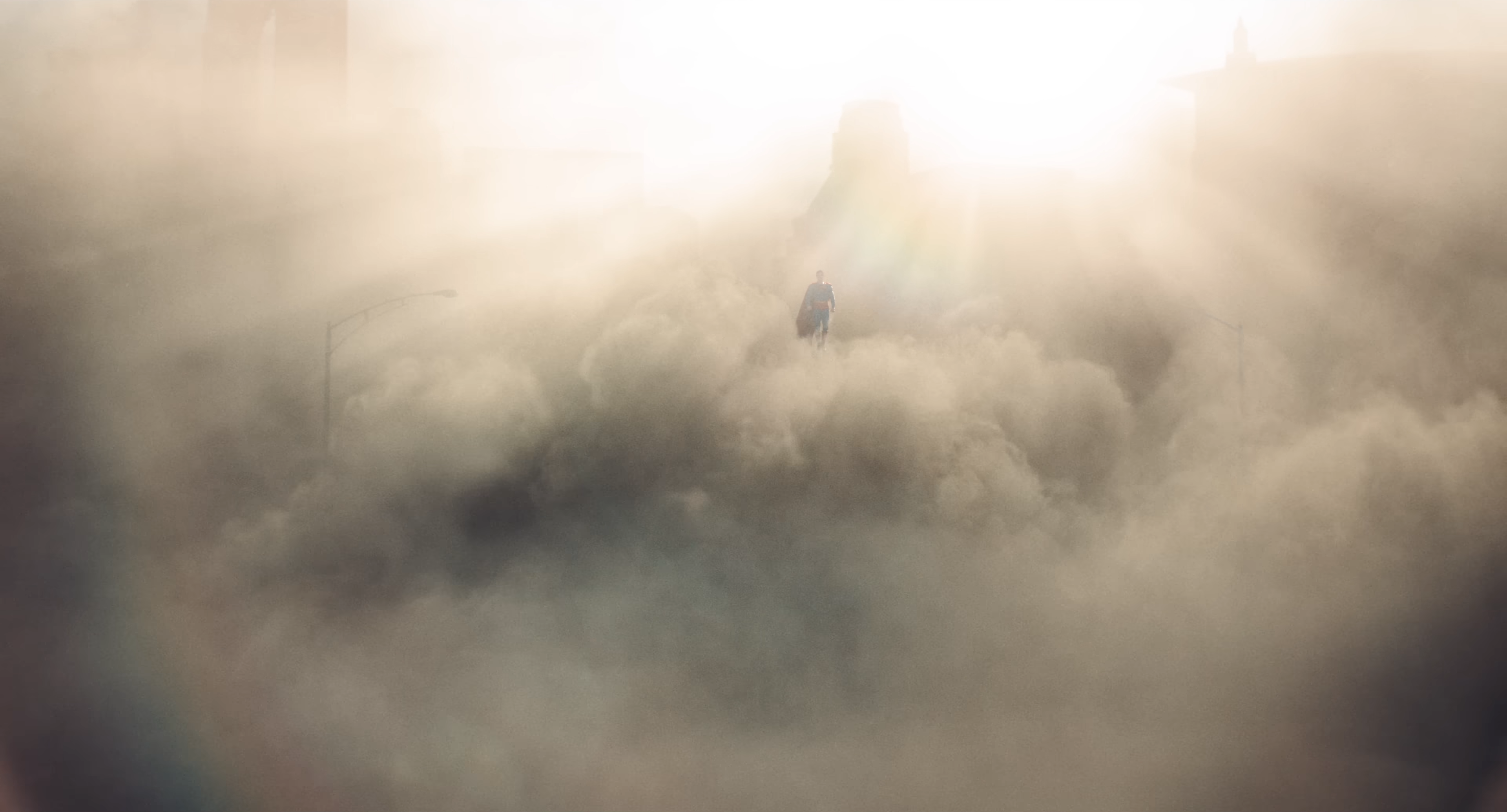
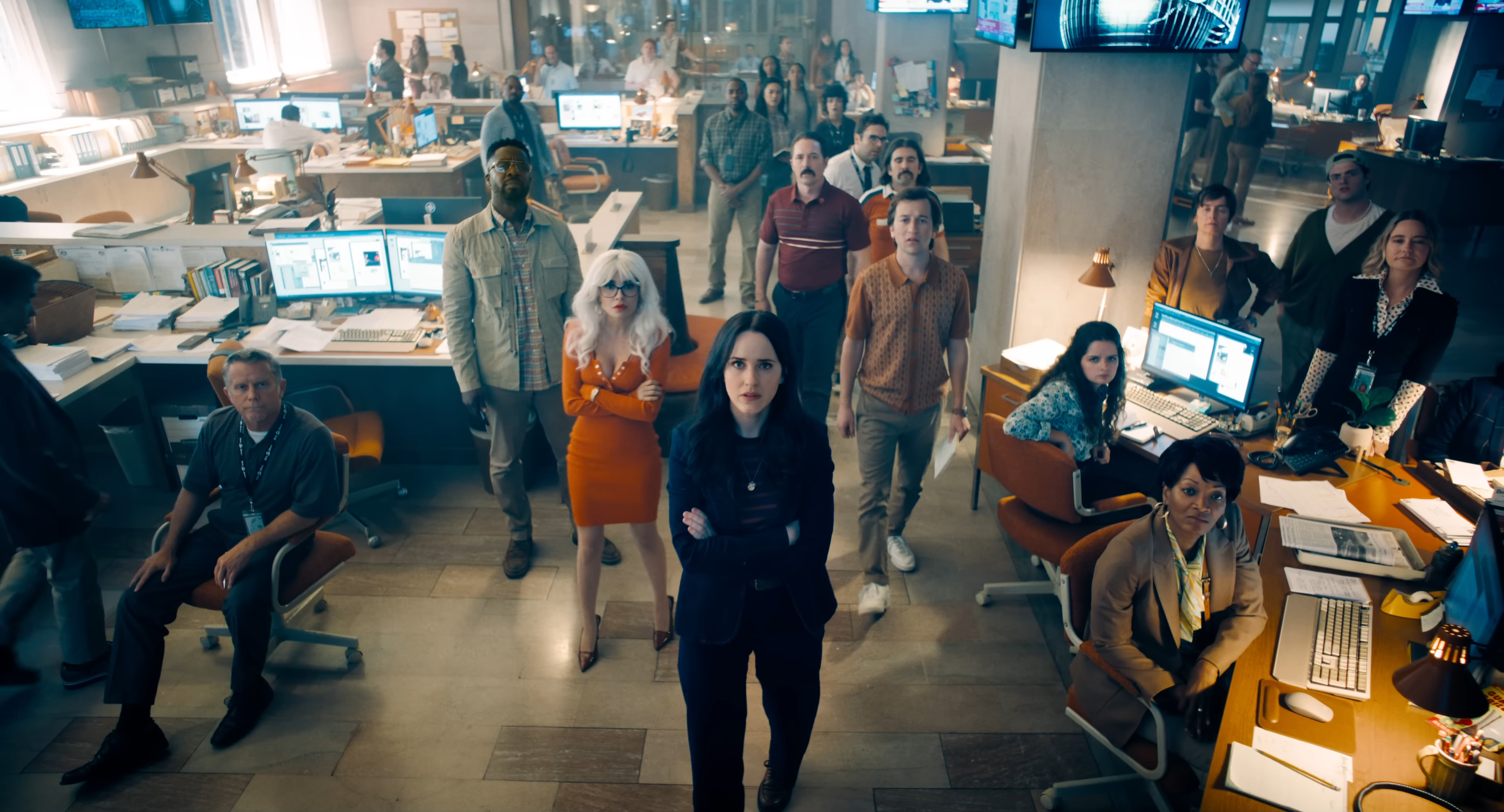
Clark Kent’s sympathy for the marginalised people of this nation is no trifling character detail. He himself is an alien who lost his home and has since made a new one in the United States, embracing its culture while wistfully holding onto remnants of his past. The immigrant narrative is easy enough for Luthor to twist using his immense media influence, leaving Superman to the ruthless scrutiny of public opinion and consequently clearing the magnate’s road to power. This is not the film to watch for sophisticated takes on global politics, especially seeing how it flattens complicated matters into straightforward wins and losses, yet the emotional clarity applied to Clark Kent’s moral compass stands out in Luthor’s world where so many others would rather sit by and watch.
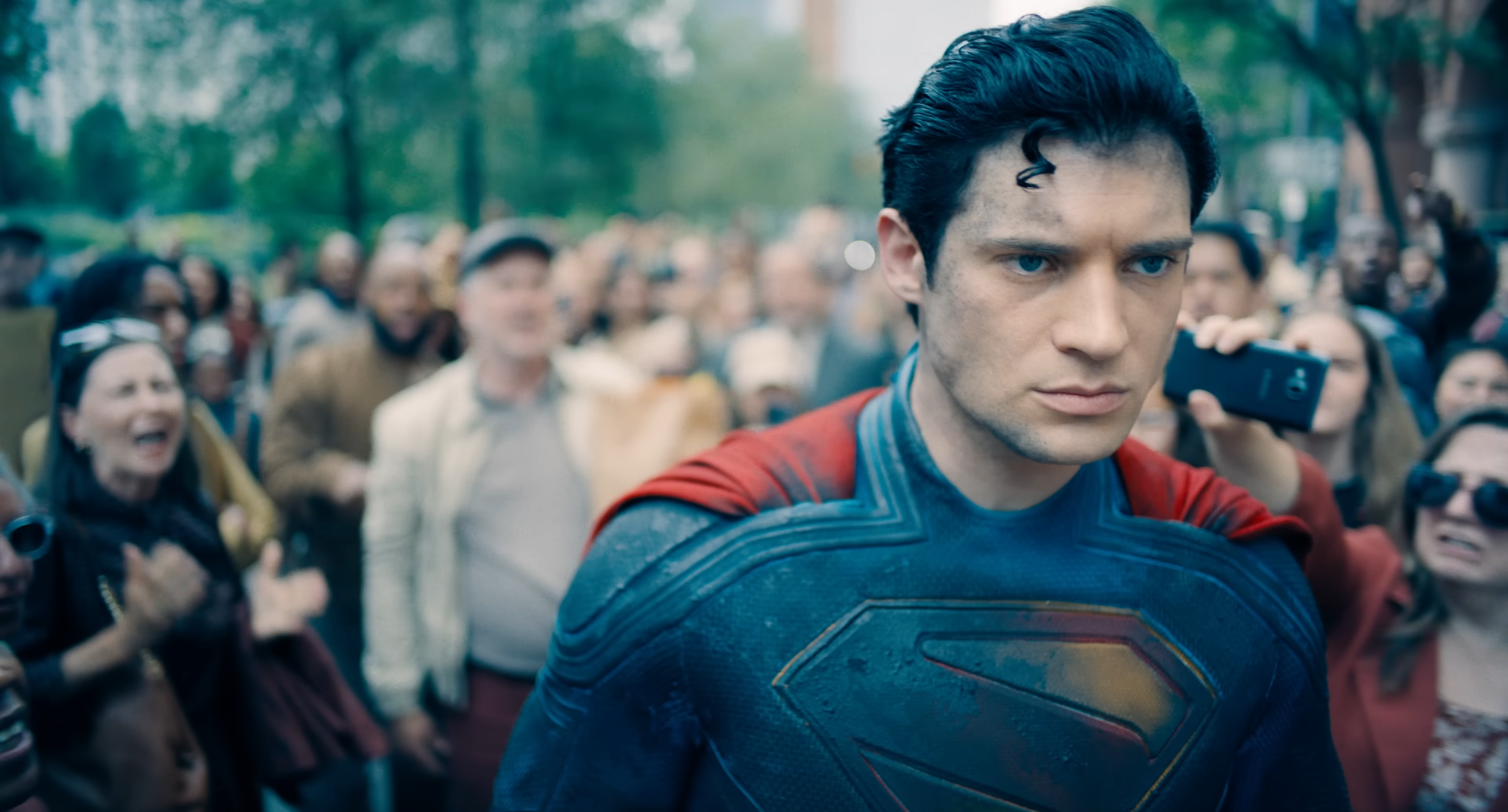
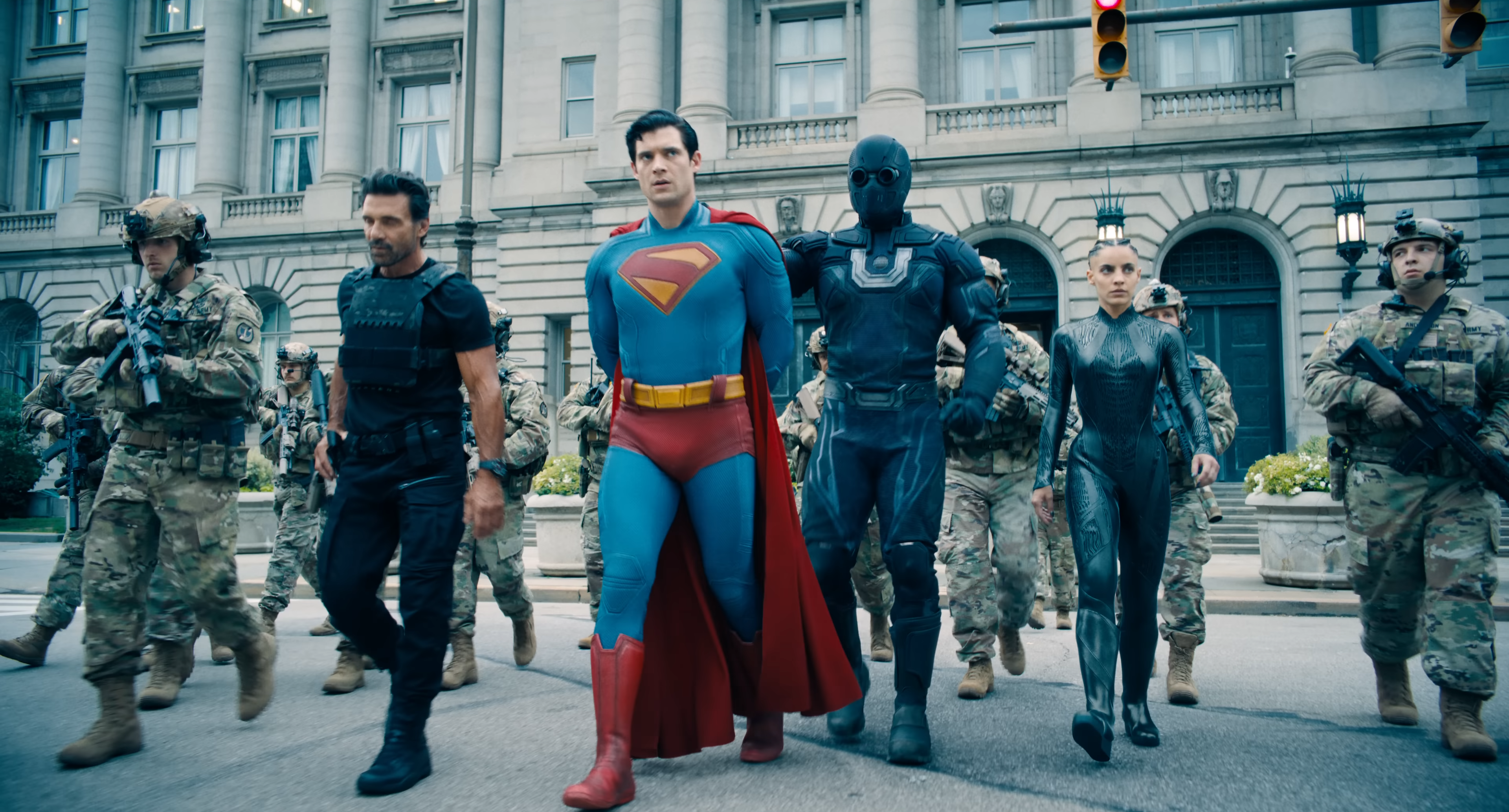
Radiant hope is at the core of Superman, so it is fitting that Gunn should imbue it with a luminous vitality that diverges significantly from Zack Snyder’s desaturated DCEU. This is not to say it doesn’t fall into familiar traps of muddy CGI, particularly when the narrative enters a pocket universe with an “antiproton river” seemingly made from Minecraft blocks, but this is fortunately offset by far more imaginative uses of digital effects. The image of a giant, neon monster spraying fluorescent plasma across Metropolis isn’t out of place for Gunn, though here it also serves as an inventive backdrop to Clark Kent’s personal crisis, humorously sidelined while shining vivid purple and green hues through the apartment window.
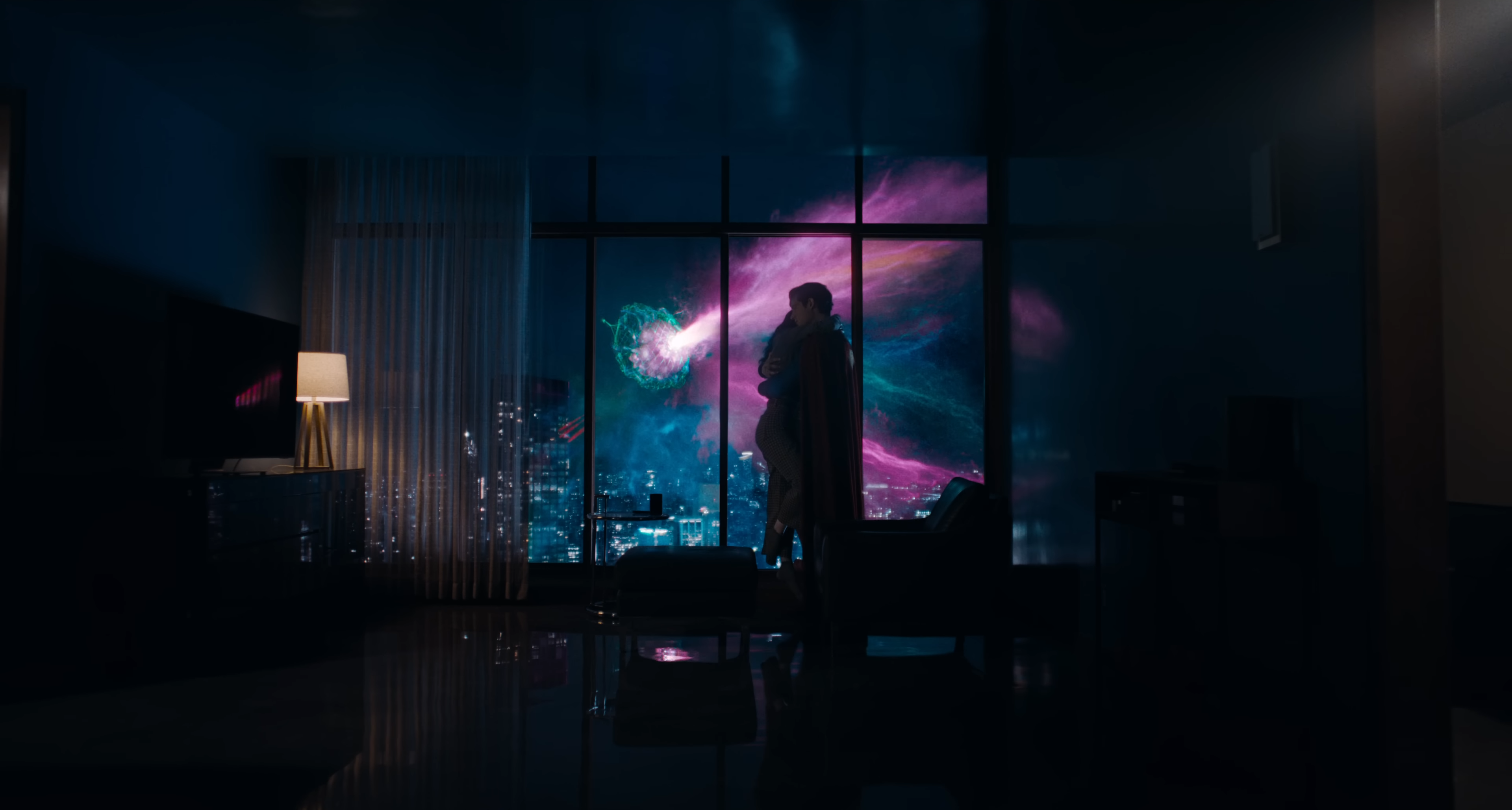
The retro-futurism of Superman’s sleek production design also thankfully gives this far more aesthetic appeal than the standard comic book blockbuster, notably redesigning the Fortress of Solitude as a laboratory, observatory, and archive grown from ice crystals. Paired with Gunn’s signature use of long, fluid takes in both dialogue and action scenes, the result is a cohesive, formal throughline, avoiding any choppy post-production compromises. Piercing wide-angle shots and artfully deployed slow-motion only reinforce the film’s vibrant visual identity, lending the spectacle a clarity that elevates it beyond sensory chaos.
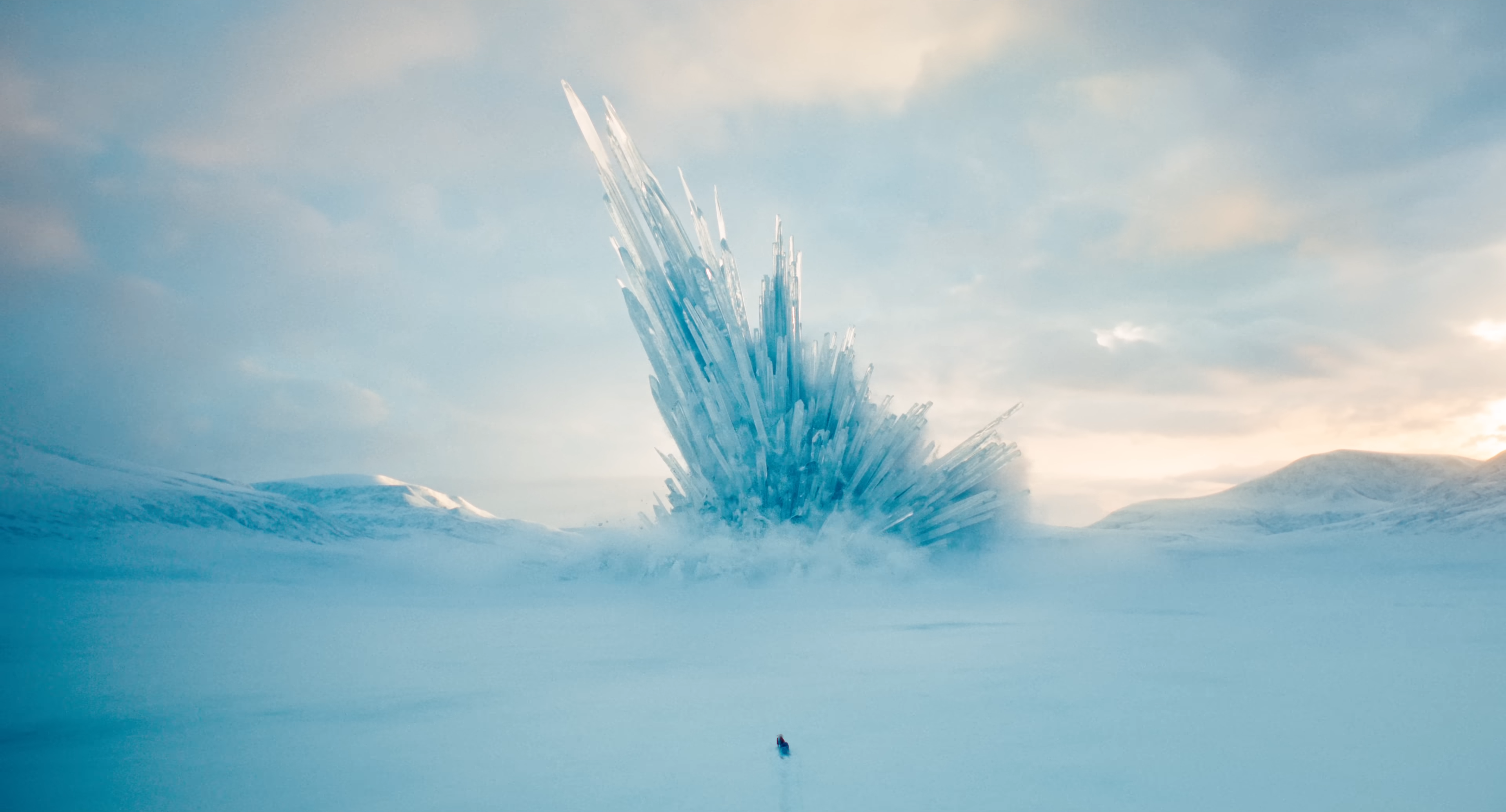
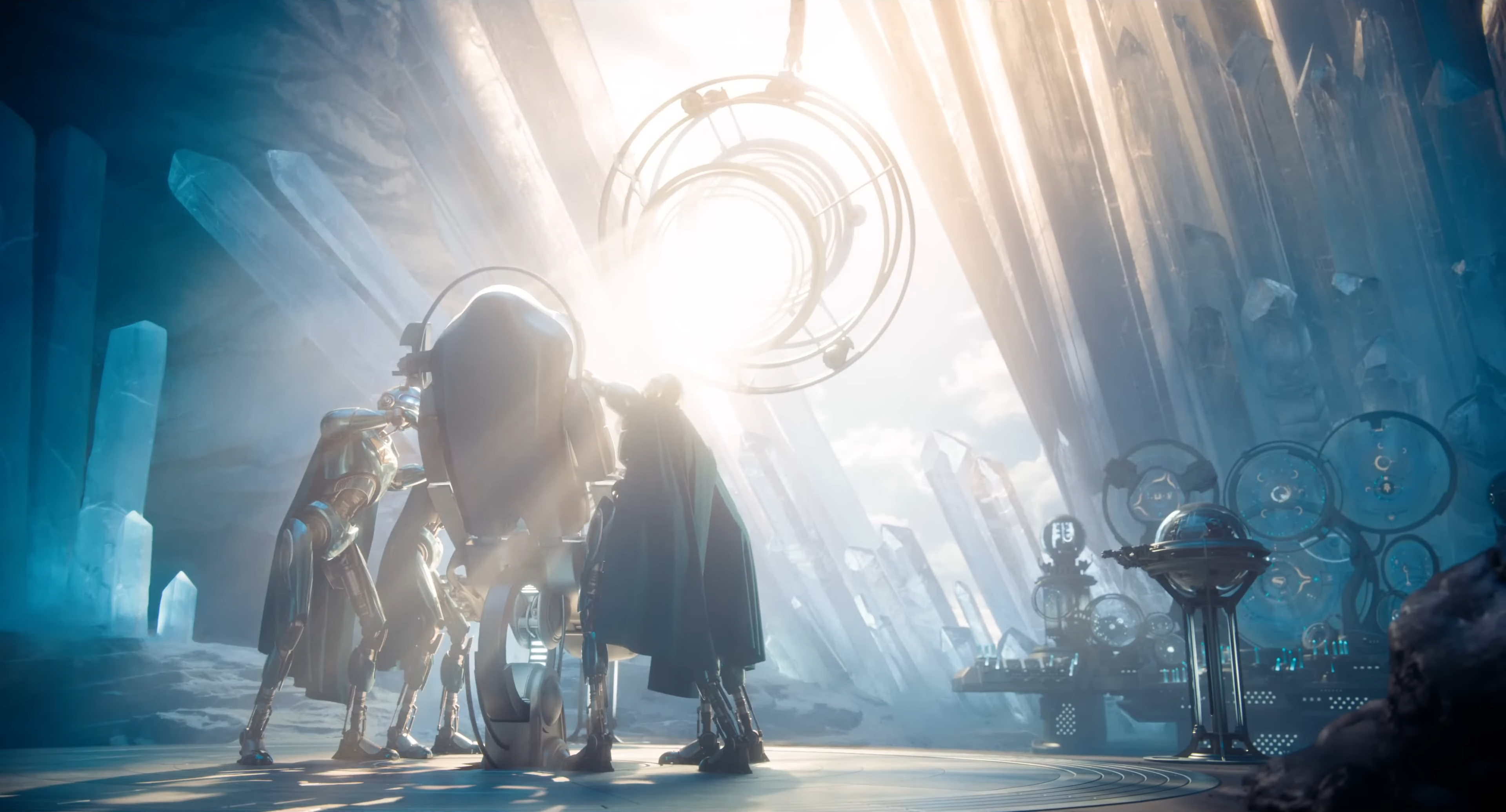
Gunn handles comic relief better than most directors working for Marvel or DC, though the tension between Superman’s banter and earnestness occasionally gives way to uninspired wisecracks, and some exposition-laden dialogue certainly doesn’t help the screenplay either. Nevertheless, his characterisation of these familiar characters is refreshing, establishing a version of Superman who half-jokingly lays claim to being “punk rock” yet truthfully embodies those countercultural ideals beneath his boy scout appearance. Radical kindness in a world of passive bystanders is its own rebellion, and David Corenswet approaches it with a sensitivity that stands in stark contrast to the conniving, corporate evil of Nicholas Hoult’s Luthor, focusing on rescuing individual victims from harm rather than directly preventing world-ending threats.
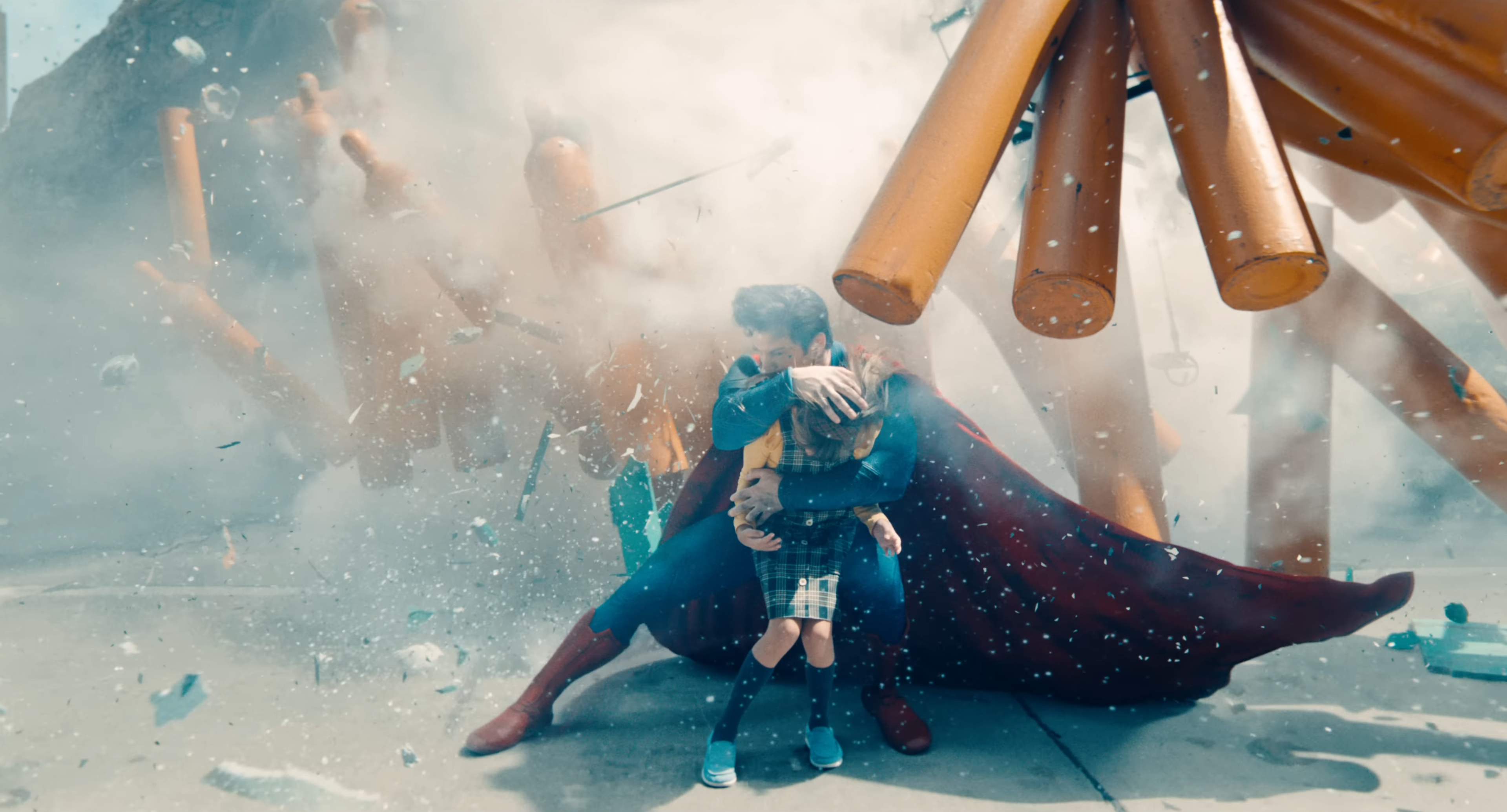
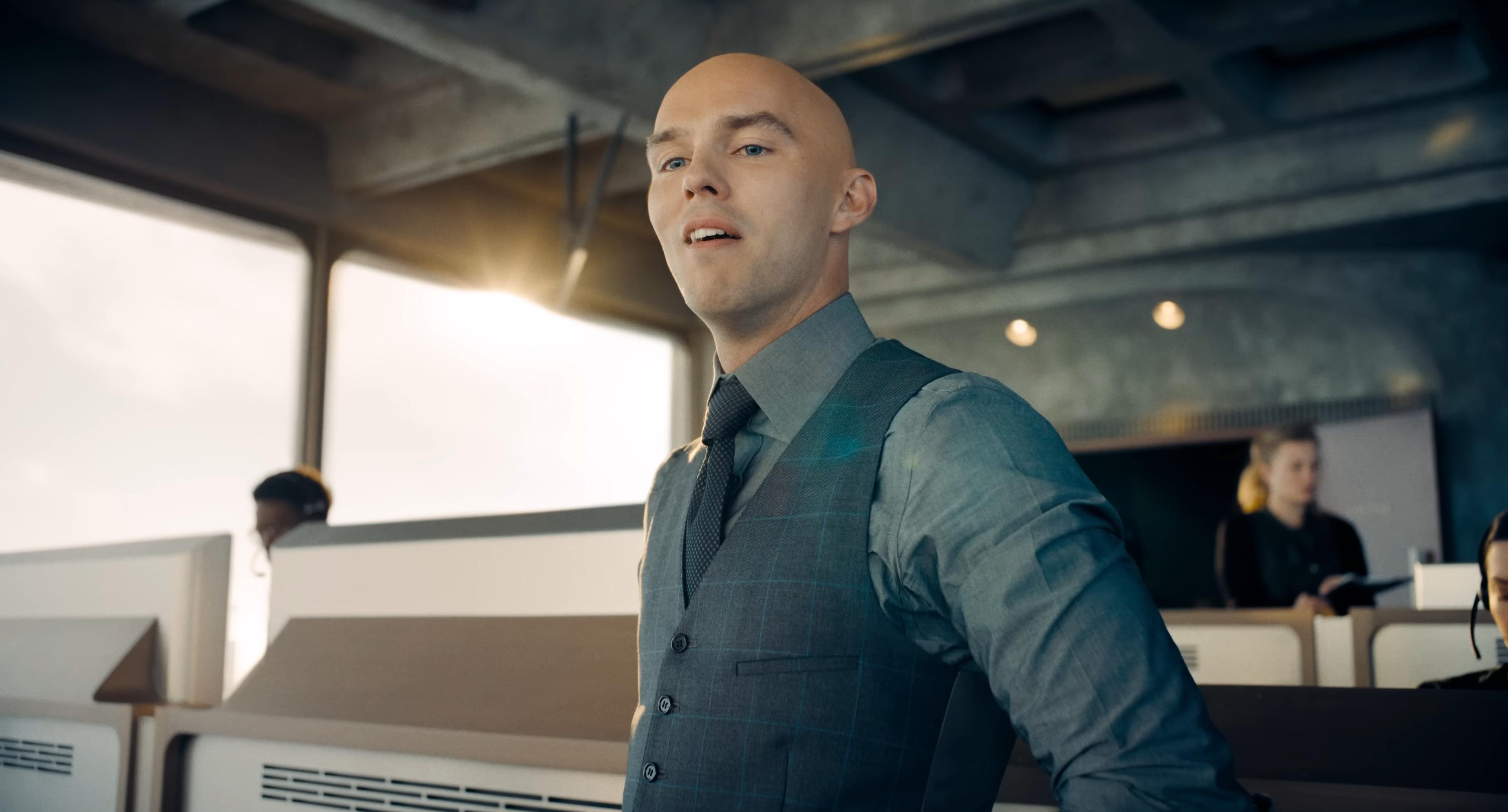
Though it is a little disappointing to see Gunn step into more of a producer’s role from here on, putting him in the pilot’s seat is possibly the best move DC Studios could have made. Superman’s blend of emotional sincerity and stylish flair offers a workable blueprint for future entries, proving that clarity of vision can be more powerful than scale. Comic book movies aren’t going anywhere, so perhaps the best we can hope from the DC Universe are these small, modest evolutions of the genre, nudging it towards stories that prioritise character over spectacle without sacrificing either.
Superman is currently playing in theatres.
